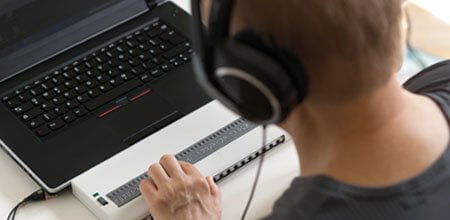Consumer Attitudes about Portable Electronic Devices Appears Positive
Categories: Assistive Technology
What are the experiences and attitudes of individuals with moderate to severe traumatic brain injury toward the use of portable electronic devices for help with memory and organizational tasks?
Past Studies
Past Studies show that individuals who receive moderate to severe traumatic brain injuries commonly have problems with thinking skills, such as memory,
This Study
This study surveyed 80 adults with moderate to severe traumatic brain injuries about their attitudes and experiences regarding PDAs. The participants were from several outpatient programs, residential treatment centers, and existing research registries. The average participant had received the brain injury 3.7 years prior to this study. Although 93% of the participants worked or attended school before their injuries, only 38% did so when this study took place. Fifty-five percent of the participants reported that they were unemployed and 14% required a supervised living environment.The researchers found that 66% of the participants stated that there was a desktop computer available to them at their homes. One-third of the group reported that they used a computer daily. Almost
Who May Be Affected By These Findings
Individuals with traumatic brain injury, assistive technology specialists, healthcare providers, vocational rehabilitation specialists, educators, and researchers.
Caveats
This was a small study group. The results of this study cannot be
Bottom Line
The researchers found that individuals with moderate to severe traumatic brain injury reported a high interest and a high degree of comfort regarding the use of portable electronic devices for help with memory and organizational tasks.
Please take a moment to comment on the value of this abstract:
Click here to take a brief survey
Find This Study
Hart, T., Buchhofer, R., & Vaccaro, M. (2004). Portable electronic devices as memory and organizational aids after traumatic brain injury: A consumer survey study. The Journal of Head Trauma Rehabilitation, 19, 351-365.


